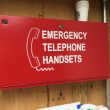Solution may be near for prepaid wireless 911 funding dilemma
The advent of prepaid wireless phones created a nasty problem for the 911 emergency-communications sector. Where wireless operators collect 911 fees from their monthly subscribers, they cannot collect from prepaid customers because those customers don’t have billing plans; they simply purchase minutes through various retail outlets.
It’s a problem that’s getting bigger, according to Patrick Halley, government affairs director for the National Emergency Number Association, who led a panel discussion on the topic last month at the organization’s annual conference in Fort Worth, Texas. Citing various sources, Halley said that 20% of wireless phone users are prepaid and that 80% of new users in May were such customers.
Moreover, Halley cited a report from the New Millennium Research Council that predicted that 60 million people nationwide would shift to less-expensive wireless plans as a result of the flagging economy. Many are expected to migrate to pay-as-you-go options.
“This is a rapidly growing market, without a doubt,” Halley said.
Several approaches have been floated to ensure that prepaid customers contribute their fair share to state 911 funds. The one that is gaining the most momentum calls for legislation that would require retailers to tack a 911 fee onto the purchase price of the prepaid wireless phone cards they sell, in part because it appears to be the easiest to implement.
But is this approach fair to the retail community? Mark Barfield, a vice president with Radio Shack, who also participated in the panel discussion at NENA, doesn’t think so. “There are tens of thousands of mom-and-pop stores that sell these things and many won’t comply,” Barfield said. “Small businesses will think that no one will catch them if they don’t charge the fee.”
That would put any retailer that does comply with such a mandate at a distinct competitive disadvantage, according to Barfield.
“People will come into our store and ask, ‘Why are you collecting this fee when the store down the street isn’t’ — and then they will shop down the street,” Barfield said. Not only would that cost the retailer a sale, but it also could create an unfair perception in the mind of the customer, he added. “People will think we’re cheating them, when we’re just complying with the law.”
But the fact that no mechanism currently is in place to collect 911 fees from pre-paid wireless users is costing the public-safety sector nationwide roughly $200 million a year, money that is sorely needed, especially in a down economy, said Jeff Robertson, executive director of the 911 Industry Alliance, who also participated in the panel discussion.
“The time for talking about this is over,” Robertson said. “A point-of-sale model is the best way to go, so let’s get it done. We could debate this for another year, but anything that we come up with, someone will be able to poke holes in it.”
For those retailers that believe this approach to be unfair, Robertson had some simple advice: “If you don’t want to subscribe to this model, don’t sell the [cards].”

















